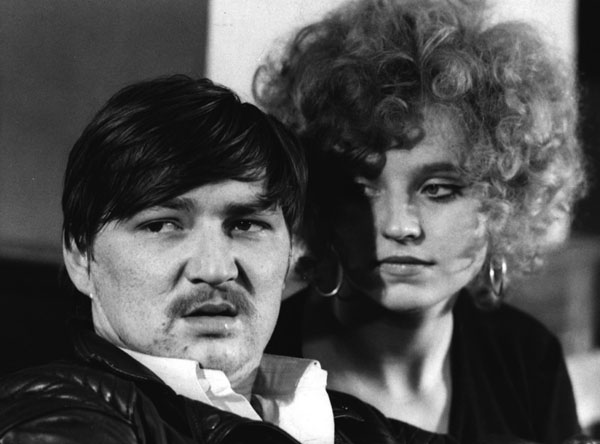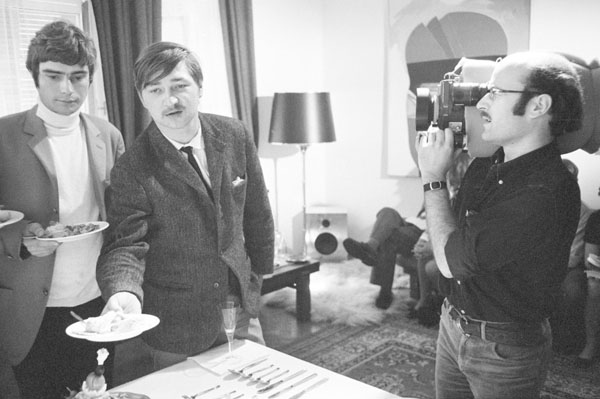Volker Schlöndorff’s adaptation of Bertolt Brecht’s first full-length play, Baal, with Rainer Werner Fassbinder in the title role, will see its festival premiere at the Berlinale next month, reports Hanns-Georg Rodek in Die Welt. This is no small feat that’s been pulled off here by Juliane Lorenz and the Fassbinder Foundation. Baal, made for West German television, was broadcast just once, on April 21, 1970, and has not been seen since.
As Rodek tells it, Brecht’s widow, Helene Weigel, who held the rights to the playwright’s work, was watching the broadcast that night on the other side of wall in Berlin. She was so horrified by Fassbinder’s “dreadful” performance (“If he thinks that a leather jacket and a cigarette dangling from the corner of his mouth makes him like Brecht…!”) that, on that very same evening, she demanded that the film be stashed away in the vaults. And it remained there for over 40 years, while Siegfried Unseld, whose legendary (and currently deeply troubled) publishing house Suhrkamp managed the rights to Brecht’s work in the west, struggled to lift the ban. Helene Weigel died in 1971, leaving the matter in the hands of her daughter. Barbara Schall-Brecht decided to honor her mother’s wishes.
When the wall fell in 1989, Schlöndorff gave it another try. Barbara Schall-Brecht stood firm. Two decades later, Juliane Lorenz took another approach, as the keeper of one legacy to another. A face-to-face meeting went well, but still: Nothing. Until, out of the blue, in 2011, Schall-Brecht sent an email to Lorenz: “The reputation of W. Fassbinder is indeed very big. I would now allow the film to be released on DVD.” Schlöndorff’s reaction: “Hallelujah, Juliane!… For Fassbinder, yes; for Schlöndorff, never! Fine, I’ll happily play the black sheep. Now there’s work to do.”
Baal, now restored, was shot in August and September 1969 in the back rooms of the Hackerhaus, a Bavarian restaurant in Munich. The budget: 160,000 German marks, less than half was what was usually spent on a television production. Schlöndorff was 30. He’d taken Young Törless (1966) and A Degree of Murder (1967) to Cannes, but The Tin Drum was still nine years ahead of him. Taking on the role of Baal the poet, Fassbinder was all of 24 and had just seen his first feature, Love Is Colder Than Death (1969), screen at the Berlinale. Margarethe von Trotta, who plays Baal’s pregnant mistress Sophie, was 27; she and Schlöndorff were already an item but wouldn’t marry until the following year. Hanna Schygulla, who would eventually become one of the most internationally recognized faces of the New German Cinema, took on a minor role.
Rodek suggests that Fassbinder goes anti-theatrical with his performance. He would appear on set at sunrise every morning and stand in front of the camera “as if in a trance” and yet never forget or botch a single line of the challenging text Brecht wrote in 1918 when he was a 20-year-old student. Nights, Fassbinder was editing Katzelmacher. Oh, and writing a radio play, too. At the end of the shoot, he surprised everyone by marrying Ingrid Caven—and then spending the money he was paid for Baal on a new sports car for his lover at the time, Günther Kaufmann. Fassbinder would make nearly 40 more films before he died just twelve years later at the age of 37.
For news and tips throughout the day every day, follow @KeyframeDaily on Twitter and/or the RSS feed. Get Keyframe Daily in your inbox by signing in at fandor.com/daily.





